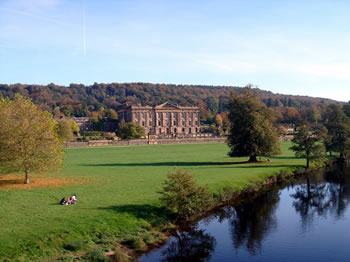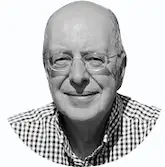Fifth estate
What's the meaning of the phrase 'Fifth estate'?
The fifth power in the land.
What's the origin of the phrase 'Fifth estate'?
 What we generally mean by the word 'estate' these days is a large body of land, often one surrounding a grand house. The best-known estate in my neck of the woods is the 35,000 acre Chatsworth estate in Derbyshire, designed by Capability Brown, and it is a classic of its kind. The Duke of Devonshire, whose family seat is Chatsworth, owns at least four other major properties, but when we talk of the third, fourth, fifth etc. estates, we aren't referring to land but to an earlier 14th century meaning of the word, that is, 'power in the land'. The OED defines that meaning of 'estate' as: "An order or class regarded as part of the body politic, and as such participating in the government.".
What we generally mean by the word 'estate' these days is a large body of land, often one surrounding a grand house. The best-known estate in my neck of the woods is the 35,000 acre Chatsworth estate in Derbyshire, designed by Capability Brown, and it is a classic of its kind. The Duke of Devonshire, whose family seat is Chatsworth, owns at least four other major properties, but when we talk of the third, fourth, fifth etc. estates, we aren't referring to land but to an earlier 14th century meaning of the word, that is, 'power in the land'. The OED defines that meaning of 'estate' as: "An order or class regarded as part of the body politic, and as such participating in the government.".
The 2013 film The Fifth Estate presents online media, and specifically the WikiLeaks website, as being 'the fifth estate'. This immediately raises the question "what are the other four?". It would be nice, if a little pedestrian, to give you a list and end it there. As so often with language, things aren't so simple.
Firstly, five is rather an abundance of estates; we started with three. In Works, 1380, the theologian John Wyclif declared that three estates were 'ordained by God'. Given those credentials and Wyclif's religious views, it's not surprising that he heads the list with the Clergy, followed by the Barons and Knights and lastly the Commons. In time, after the concept of the three estates of power became accepted, the wording was generally given as 1. Lords Spiritual; 2. Lords Temporal; 3. Commons.
All was clear until 1559, when another religious John, the Bishop of London John Aylmer, muddied the waters. He stated that the 'three estates' were those required by parliament to enforce legislation, viz. the Crown, the House of Lords and the House of Commons.
In the parliament hous you shal find these 3 estats. The King or Quene, which representeth the Monarche. The noble men, which be the Aristocratie. And the Burgesses and Knights the Democratie.
So, by the 16th century, although there might have been some dispute about what they were, there were three estates.
Move on to the 18th century and we get the notion of the fourth estate. In our time this is generally regarded as being the press, in the form of powerful press barons like Lord Beaverbrook (who actually was a baron and is the source of the term 'press baron'), William Randolph Hearst and latterly Rupert Murdoch. The novelist Henry Fielding was the first to refer to a 'fourth estate', in the Covent-Garden Journal 1752, but he didn't believe it to be the press:
...that very large and powerful Body which form the fourth Estate in this Community - The Mob.
Before we settled on media barons as the holders of the fourth estate, various writers put forward 'the mob', 'William Cobbett' and 'Harper's Magazine' as candidates.
Likewise, just as various people were called 'the fifth Beatle', there are various nominees for the title of 'fifth estate'. What people really mean by the expressions 'fourth estate' and 'fifth estate' is 'a power in the land that has emerged to rival the existing acknowledged powers'. What that might be depends on time and place. In 1932, The Times reported that "radio has been called the fifth estate.". By 1955 they were saying that "[Trades] Unions are now the fifth estate of the realm.". Now it is a foot race between WikiLeaks, social media, WWW etc. Once we have settled on a clear winner we will presumably move on to the 'sixth estate'. Any suggestions?

